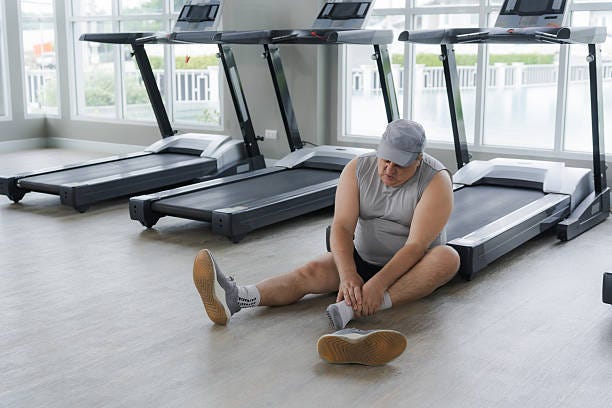Signal Boost #003: Bladder Failure, Lil B, and the Sunken Place
Field reports from when the brain short-circuits and the body takes over.

Happy Halloween! While people are spending absurd amounts of money to scare themselves straight, I’d argue the most terrifying thing this season is still your own brain.
Let your psychosis do the haunting this holiday season!
Boo,
Colin
The optimist will tell you they never regret the things they’ve done, that every mistake made them who they are today. They are, of course, full of shit.
See, there are moments when my body has acted on its own behalf without my consent—when the signal from my brain misfired somewhere on the way down and I was left watching the aftermath. What’s really happening, biologically, is that stress chemicals like dopamine and norepinephrine flood the brain and shut down the prefrontal cortex—the part that plans, decides, and holds composure. In its place, older, faster systems—the body—take control. The mind just watches.
It is the sunken place.
Once, in college, I decided that the best way to start a conversation with a girl I had a crush on was to sit directly next to her in a 12-person seminar held in a 120-seat room where everyone else left three or four seats of buffer space. And then, what did I do? Nothing. Not a word. For the rest of the quarter, I sat far away, an unspoken apology for what could be described best as “social performance art” and worst as “ew, fucking creep.”
Whenever I think about that class, my body does something involuntary: it breaks into a kind of nervous scat — a skiddle-bop, a mishmash of noises that goes, “Blap, blap, blap, la, la, la,” a jamming signal to drown out psychic interference. A neurobiologist might call it the vagus nerve trying to save me — a built-in regulation mechanism that convinces the body it’s not under threat.
Usually, these memories arrive as small jolts that are embarrassing but survivable. But every so often, I drop through the trapdoor that I once went through: the lights dim, the muscles tense, and I watch myself levitate into a spotlight on center stage while my mind, from the back row, watches helplessly. I go back to the sunken place.
A few years ago, I worked full-time for a university program that helped incarcerated students earn bachelor’s degrees. To finalize my security clearance to go inside the prison, I was required to take a drug test.
That shouldn’t have been a problem, except that I’m physically incapable of peeing on command. Put me at a crowded urinal or in a doctor’s office with a plastic cup and my bladder folds its arms. (When people reminisce about the urinal troughs at Wrigley Field—the ones where you had to face someone peeing into the other side—I chuckle, but in reality, that’s a goddamn nightmare.)
On the morning of the test, I did what I always do before such a urine test: drank absurd amounts of water and coffee, rehearsed positive self-talk and tried to bully my organs into confidence.
The prison, like many others, was built like a diagram of anxiety: concentric circles of observation, concrete walls that stretched up into the sky, razor wire creating lab-rat mazes throughout the grounds, towers with armed guards watching every move. This prison contained the last panopticon in the country, a design meant to make you aware that you’re being seen even when you’re not.
Sitting there, in the car, I could feel my body tune to its frequency, my shoulders tightening, my breath becoming more shallow, my skin prickling with attention.
When I entered the visitor’s center, there was another test-taker, a woman named Brittany (not her real name). We were both patted down by guards of our respective genders and escorted out of the visitor’s center together. I assumed we’d go our separate ways once inside.
“Glad you both could come in at this time,” said Marianne, the facilitator (also not her real name), who met us at the vistor’s center doors. “Didn’t want to have to do this twice today.”
Brittany lit up. “Oh, great,” she said. “Hopefully that means I’ll get out of here on time. Still working at the hospital until the job starts here.”
The stakes were raised for my bladder. Would I make Brittany late? Was Marianne already annoyed I existed? My mind started cataloguing possible outcomes: delay Brittany, irritate Marianne, ruin the schedule, mark myself as the difficult one. It felt ineveitable.
In the building that houses the warden’s command center, Marianne led us to a small conference room whose walls, under a humming fluorescent light, took on the color of powdered milk. She gave us forms to fill out and left the room for a few minutes.
“I hope this doesn’t take too long,” Brittany said. “I’ve really got to make sure I get to work on time.” Didn’t she say this already?
I smiled and nodded. “Yeah, same,” I said.
“You don’t think you’ll take too long, do you?” she asked, half-joking.
Could she read the panic on my face? Was I sharing some of my fears out loud? “I really hope not,” I said.
When Marianne returned, she took our paperwork and led us from the conference room down a long hallway. “You’ll have fifteen seconds to start,” she said, walking briskly, us following her, her voice even and clearly rehearsed. “When time’s up and I haven’t heard anything, I’ll knock. Then we have to redo the test.”
“Wait — has anyone ever not finished in time?” Brittany asked.
We stopped at the office door and Marianne leaned in. “Honestly, it doesn’t happen as much as you think. It used to be worse—we had to stand inside with you to make sure you didn’t bring in pee.”
We went inside the office, and Brittany walked straight toward the bathroom, determined. I took a seat at the table while Marianne set down her things and handed Brittany a cup, patiently explaining the mechanics.
She was so calm, so procedural—Marianne—while Brittany waited to pee, and so was this other random employee, who was typing away as strangers came in to pee around her. The hum of the fluorescent light, the clicking keyboard, the faint sound of running water from the bathroom, everyone being patient. See, if I can be that patient—if I can take my fifteen seconds of pee time and convert it into patience, then divide it by three people—that’s only five seconds each. Totally doable. Five seconds of patience per person. If they could just spare that much time for me—if I could borrow it, even—I’d give it back. I could probably—
“That was fast,” Marianne said, as Brittany placed her pee-filled cup on a silver medical tray.
“Alright, you’re next,” Marianne said, handing me a cup.
“Good luck,” Brittany said, taking a seat next to me.
“Yep,” I said, standing up and taking the empty cup from Marianne. As I stepped into the bathroom, I caught the faces of Brittany and Marianne as I closed the door.
I secured the door with the click of the lock, and in that moment—SWOOSH—I dropped straight through the trapdoor. Conscious but not in charge. The sunken place.
The toilet gleamed. The air vent hissed. One of the women murmured something that I couldn’t quite hear. I tried to breathe. I tried to imagine waterfalls, garden hoses, a flash flood of Mountain Dew dousing my body, anything. I stared at the wall, at a single screw above the paper towel dispenser. I imagined scooping water from the toilet and passing it as my pee, escaping through the barred windows and coming back tomorrow, anything, ANYTHING that—
Knock, knock.
“Yes?” I said, my voice shooting up an octave.
“Have you started?” said Marianne.
“No,” I said.
“You have to come out then,” she said.
And then I escaped back to reality, aware of everything: the sound of my heartbeat, the echo of the fan, the heat on my face. What felt like a minute took only a few seconds. I zipped up, sighed and opened the door empty-handed.
“I can’t pee.” It came out flat, even apologetic. And then, as I handed her the cup, I noticed a steady stream of blood running down from my fingernail.
“Um, okay,” Marianne said, looking down at a sheaf of papers. “Are you bleeding? We’re gonna have to do this again. Do you need some water? We’ll grab some and head to another room before you take it again.”
Brittany sighed, and we all left—together—down the hallway to yet another room, where we sat around a small round table. We all took a seat, and Marianne poured me a cup of water from a carafe. I felt like I should say something.
“I have stage fright,” I said, breaking the silence. “But for, you know—”
Brittany looked at her watch. “I mean, with work and all, I gotta, you gotta—”
“He can take the test again in a few minutes,” said Marianne, covering for me. I nodded, unable to urinate and, furthermore, advocate for myself.
I wasn’t allowed to drink more than two cups of water—anything more could dilute the test, Marianne said—so I rationed what I had like it was medicine. Each sip was deliberate and I tried to focus each gulp down to its final destination.
My middle finger on my left hand, wrapped in toilet paper, was still leaking a steady line of blood. I pressed harder, as I tried to hide it from the others. I must’ve hit something important on the door? Maybe an artery? Do fingers have arteries?
“Alright — you ready to try this again?” Marianne said.
I nodded, thankful that my fifteen minutes of slow, dragging, awkward penance were up, and we all walked back to the office. Once inside, Marianne handed me another cup and nodded toward the bathroom.
“You got this,” Brittany said.
“Yep,” I said, and I shut the door. I unzipped, and for eight seconds—I counted—I waited. I could feel myself edging toward the sunken place again. Oh god. What is happening? Will I ever pee again? Does this thing even work? I might be dyin—
And then it happened. A single drop, then a stream, then a rush so strong it startled me. My whole body unclenched. I peed into the cup until it was brimming over the edge — we struck gold, pa! — and poured a bit off before I put the lid on tight. I set the cup carefully on the sink, and flushed the rest.
In the mirror, my face looked pale and stunned, as if I’d just returned from somewhere I wasn’t supposed to go. I mouthed expletives at myself and washed my hands in silence.
When I emerged, Marianne smiled. Brittany cheered. I smiled back, bleeding still but wrapped in toilet paper, and wiped my hand clean before we moved onto fingerprinting.
Driving home, with dried blood now flaking on the hem of my shirt, I thought about how absurd it all was — that a body could stage a full rebellion over something so basic, and that I didn’t have any say in it. Part of the morning had gone on without me, and I had to live in its mess.
Everyone has their version of it: the moment the body mutinies and the mind goes silent.
Thank you to those who have willingly shared their own sunken place story in this week’s…
What’s your “sunken place” moment — when you froze or panic-acted and watched yourself fail?
Laura: When I was 12, I was playing a kickball game, and my schoolyard crush, who, before this, had never acknowledged my existence, was teasing me, calling me a childhood nickname.
Finally, a group of popular girls yelled over that if I wanted him to stop, I should just shut up and ignore him. Before I realized what I was doing, I was JOGGING OVER to them (probably in my bright pink zip-off cargo pants) to explain that, actually, I *couldn’t* ignore him because it was just instinct to answer to the nickname. It had nothing to do with how much I liked him. Thanks, though!
Before I had finished jogging my way back to the outfield, I was already questioning what had happened to my sanity in that moment. I would say my reputation never recovered, but clearly, I barely had one to begin with.
Kevin: I fall off a treadmill in this story. I think it’s important to tell you now, because otherwise it will be too obvious later.
Going into my sophomore year of college, I lost a good amount of weight. So, as the year began, I was feeling good, ya know. I was an RA and worked with a cute older girl, Angela, during orientation. So, you can imagine that I was really trying to be cool and fun during the few days we worked together.
One day, I was running on a treadmill in our building, and cute older Angela walked in to ask me a question. See, you know where it’s going. It all happened so fast, and there was nothing to do. In a moment, I felt extra cool having a conversation with the cute older Angela while running, and then. Poof. Gone. The good news is that I did not severely injure myself, which is what I tell my older self to feel better. I wonder if cute older Angela ever thinks about that moment.
Lucas: Okay, so! During my freshman year of college, I presented an argument against censorship in music to my public speaking class. It was a really weak stance to begin with, but I made it about a zillion times worse when I used a Lil B song to plead my case. The song? “Like a Martian” — a little ditty about having sexual intercourse with one’s significant other.
It didn’t support anything outside of the fact that my music interests at the time were…shitty (just like my presentation!). But the rock bottom came after I finished up my magnum opus and my professor asked if I was single. When I confirmed, she said, “I’m not surprised.” I stood in front of the class for a solid minute waiting for a clever response. It never came. One of the few moments in my life when I couldn’t get a word out. I wanted to run away, but my bestie, Chad, was in the on-deck circle and had to talk about how local newspapers were important to journalism, or some dumb take like that.






This whole thing was wonderfully cringe and totally enjoyable to read.